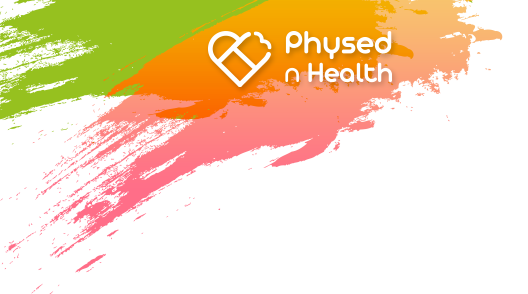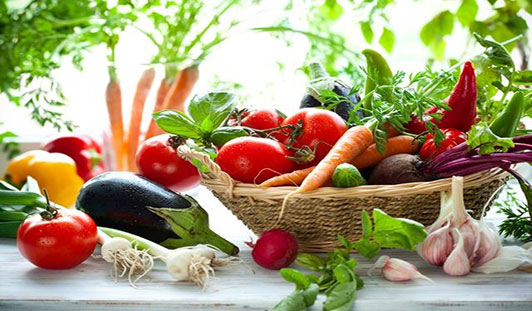VEGETARIANS
As you are aware, there exist many types of vegetarians, primarily:
- Vegans avoid all animal products, eggs or dairy products. They eat primarily vegetables, grains, fruits, and nuts.
- Fruitarians eat only fruits, seeds, nuts.
- Lacto-vegetarians eat dairy products, but not eggs.
- Lacto-ovo vegetarians eat both eggs and dairy products.
- Pesce-vegetarians include fish in their diet.
- Pollo-vegetarians eat fowl, such as chicken and turkey, but avoid red meat and pork.
One issue that is predominant in vegetarian diets is the lack of quality Omega-3 fatty acids. Omega-3 fatty acids have been shown to slow the progression of heart disease, act as an anti-inflammatory, help with depression and other personality disorders, and help keep your skin supple and clean. In fact, studies have linked lack of Omega-3 oils to acne, eczema, and other skin conditions. Omega-3 oils are traditionally found in fish and nuts. While nuts are typically included in the vegetarian diet, they tend to be used too infrequently.
Another issue typically found in vegetarian diets is the lack of vitamin B-12. B-12 plays a critical role in the body by supporting the nervous system and brain, as well as being used as an energy source. Deficiency of B-12 leads to fatigue, depression and poor memory. Long-term Deficiency of B-12 leads to several diseases that tend to leave irreversible damage.
Those are the two prime dietary limitations of vegetarian diets. How to overcome them, you ask? Simply take an Omega-3 and B-12 supplement daily. As long as you follow the suggestions on this document for optimum dietary inclusions, you are covering the known deficiencies.
However, A known issue with vegetarians is that they eat too many carbs with an over-reliance on grains, pasta, bread, rice, (starches), etc. Reliance on those food choices is counter-productive to losing fat.
For those who want to lose fat: Eat about 1500 calories daily consisting of balanced meals throughout the day. The big trick is to include protein in every meal. See the tables below.
Note: Fruitarians are not a recommended dietary choice. It is not a healthy long-term choice and is not a conducive choice for fat loss or muscle gain.
VEGANS
Breakfast
- Steel cut oatmeal, whole grain toast, fruit, nuts, pea protein, Udo’s Oil, veggie protein, rice protein, Soy protein, almond butter, peanut butter (low sugar).
Lunch
- Tofu chicken or other tofu products, salads with nuts. Soy protein shakes. Natural protein bars. Peanut and almond protein bars. Whole grain products. Brown rice, hummus.
Dinner
- Tofu chicken or other tofu products, salads with nuts. Soy protein shakes. Natural protein bars. Peanut and almond protein bars. Whole grain products. Brown rice, hummus
Key Points
- No refined sugar. No white flour. No sugar-based drinks. No white rice or pasta.
Recommendations
- Hummus, soy protein shakes, pea protein shakes, Vegan protein bars, Pumpkin seeds Flaxseed, Olive and Sunflower oil. Algae oil.
FRUITARIANS
Breakfast
- Fruits, almond protein shakes.
Lunch
- Fruits, almond protein shakes.
Dinner
- Fruit, almond protein shakes.
Key Points
- Try to avoid ripe fruit (fermenting). Avoid excessive fruit juices.
LACTO
Breakfast
- Steel cut oatmeal, whole grain toast, fruit, nuts, pea protein, Udo’s Oil, veggie protein, rice protein, Soy protein, almond butter, peanut butter (low sugar). Veggies. Some fruit. Cheese, Greek yogurt. Low-fat milk.
Lunch
- Tofu chicken or other tofu products, salads with nuts. Soy protein shakes. Natural protein bars. Peanut and almond protein bars. Whole grain products. Brown rice, hummus. Cheese, Greek yogurt. Low-fat milk. Some fruit.
Dinner
- Tofu chicken or other tofu products, salads with nuts. Soy protein shakes. Natural protein bars. Peanut and almond protein bars. Whole grain products. Brown rice, hummus. Cheese, Greek yogurt. Low-fat milk.
Key Points
- No refined sugar. No white flour. No sugar-based drinks. No white rice or pasta. Recommendations: Hummus, soy protein shakes, pea protein shakes. Vegan protein bars. Pumpkin seeds. Flaxseed. Olive and Sunflower oil. Algae oil. Protein bars. Pumpkin seeds. Flaxseed. Olive and Sunflower oil. Algae oil.
LACTO-OVO
Breakfast
- Steel cut oatmeal, whole grain toast, fruit, nuts, pea protein, Udo’s Oil, veggie protein, rice protein, Soy protein, almond butter, peanut butter (low sugar). Eggs. Veggies. Some fruit. Cheese, Greek yogurt. Low-fat milk.
Lunch
- Tofu chicken or other tofu products, salads with nuts. Soy protein shakes. Natural protein bars. Peanut and almond protein bars. Whole grain products. Brown rice, hummus. Eggs. Veggies. Some fruit. Cheese, Greek yogurt. Low-fat milk.
Dinner
- Tofu chicken or other tofu products, salads with nuts. Soy protein shakes. Natural protein bars. Peanut and almond protein bars. Whole grain products. Brown rice, hummus. Eggs. Veggies. Cheese, Greek yogurt. Low-fat milk.
Key Points
- No refined sugar. No white flour. No sugar-based drinks. No white rice or pasta. Recommendations: Hummus, soy protein shakes, pea protein shakes. Vegan protein bars. Pumpkin seeds. Flaxseed. Olive and Sunflower oil. Algae oil.
Are you a vegetarian? What is your diet?
Leave us a comment. Help us help others.








